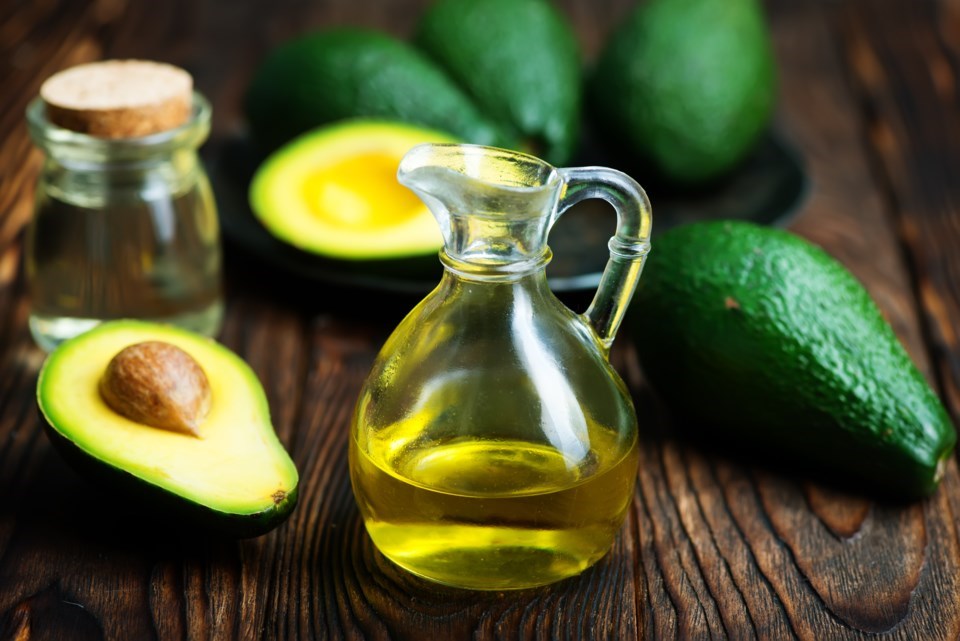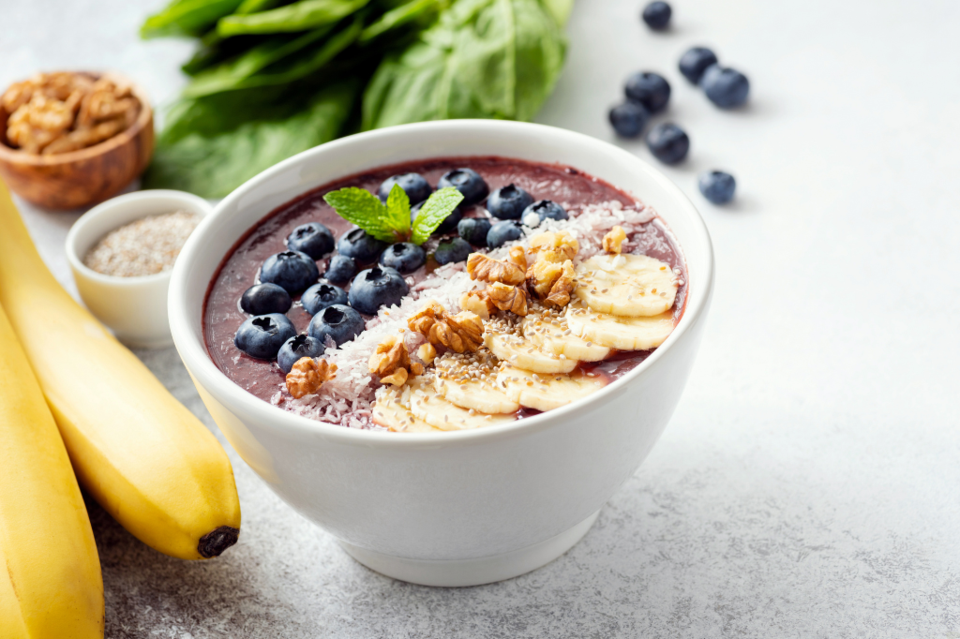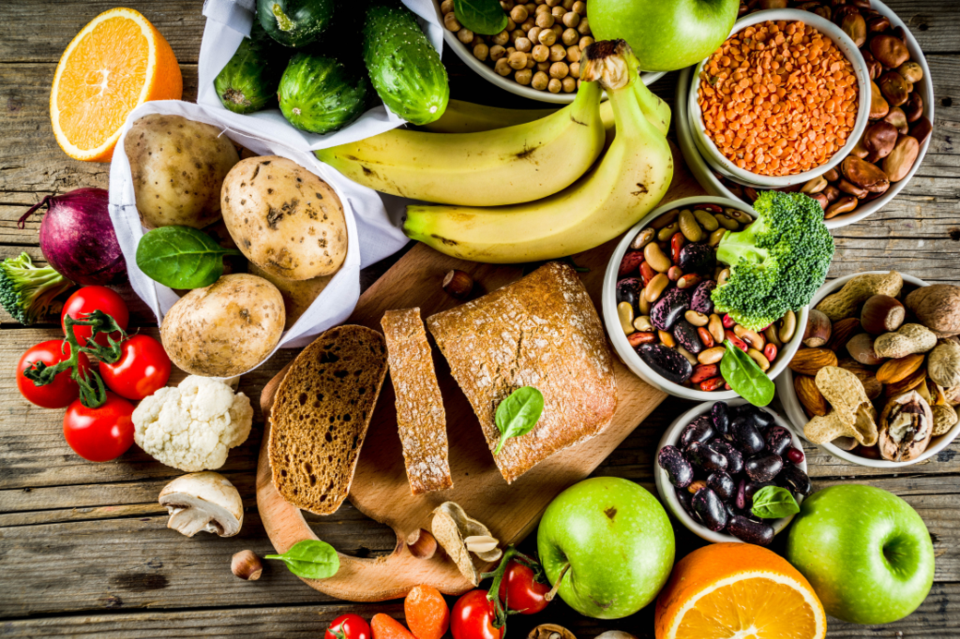Nutrition advice is everywhere, but not all of it is true. Some myths have become so ingrained into society that they seem like fact.
Previously, we debunked 10 common nutrition myths. Today, we're tackling 10 more, using science-backed evidence to uncover the truth about healthy eating.
Myth 1: Carbs make you gain weight
Truth: Carbs don’t inherently cause weight gain. Weight gain results from consuming more calories than your body needs, regardless of whether those calories come from carbs, fats, or proteins.
Many studies have found that diets emphasizing whole grains, fruits, and vegetables (all carb-rich foods) were associated with better weight management and improved heart health compared to low-carb diets. Whole carbs are loaded with fibre, vitamins, and minerals that promote satiety and support metabolic health. Refined carbs, like sugary snacks, are the real culprits behind weight gain—not carbs as a whole.
Myth 2: Eating fat makes you fat
Truth: Healthy fats are crucial for a balanced diet and can even help with weight management when consumed in moderation.
Diets rich in unsaturated fats—like those found in olive oil, nuts, and avocados—can lower the risk of heart disease, aid weight control, and support brain health. Some saturated fats from grass-fed butter and animal proteins are healthy too but not saturated fats found in processed foods—so choose your sat fats wisely. Healthy fats are an essential source of energy and play a role in absorbing fat-soluble vitamins (A, D, E, and K). Trans fats, however, are harmful and should be avoided.

Myth 3: Skipping meals speeds up weight loss
Truth: Skipping meals often backfires by leading to overeating later, disrupting metabolism, and increasing stress hormone levels.
Research reveals time and again that meal-skipping was associated with higher calorie intake at subsequent meals and a greater likelihood of weight gain over time. Regular meals with a balanced mix of macronutrients (carbs, fats, and proteins) stabilize blood sugar levels, reduce cravings, and make it easier to stick to a healthy eating plan, which ultimately is the best way to manage weight in the long run.
The key distinction is between intermittent fasting, which involves consuming food only during a specific window of time, and skipping meals, which can lead to overeating and metabolism disruption. Intermittent fasting, when done properly, has been shown to offer various health benefits like improved insulin sensitivity and reduced inflammation. However, simply skipping meals without a structured eating plan is generally not an effective or sustainable weight loss strategy.
Myth 4: Gluten-free is healthier for everyone
Truth: Gluten-free diets are only beneficial for those with celiac disease or non-celiac gluten sensitivity. For everyone else, avoiding gluten offers no health benefits and may even lead to nutrient deficiencies.
Research found no evidence to support a gluten-free diet for the general population. Gluten-free products often lack fibre and essential nutrients like B vitamins and iron, which are present in whole grains containing gluten.

Myth 5: Detox teas and juices cleanse your body
Truth: Your liver and kidneys are already efficient at removing toxins from your body. "Detox" products are often unnecessary, expensive, and unsupported by science.
Moreover, some detox teas and juices can cause harmful side effects, including dehydration, electrolyte imbalances, and laxative dependency.
While superfood juices packed with greens, beets and things like turmeric can be a great addition to a healthy diet, there is no scientific evidence that drinking nothing but superfood juices for days does a better job of detoxing your system than a clean, balanced diet.
Myth 6: Fresh produce is better than frozen
Truth: Frozen fruits and vegetables are just as nutritious—if not more—than their fresh counterparts.
Research published in Science Direct found that freezing produce at peak ripeness helps preserve vitamins and minerals in certain foods like blueberries and broccoli. While fresh produce can lose nutrients during transportation and storage, frozen options maintain their nutrient content longer, making them a convenient and cost-effective choice.

Myth 7: Late-night snacking leads to weight gain
Truth: Weight gain is determined by calorie intake versus expenditure, not the timing of meals.
Eating late at night doesn’t directly cause weight gain unless it leads to consuming excess calories. Nighttime snacking tends to involve less healthy choices, which is the real issue. Focus on overall calorie balance and food quality rather than the clock. And if a late-night hunger pang hits, go for something nutritious with protein such as Greek yogurt or a boiled egg or handful of nuts.
Myth 8: High-protein diets are bad for kidneys
Truth: For healthy individuals, high-protein diets don’t harm kidney function and can support muscle growth and weight management.
A meta-analysis found no evidence that protein intake within recommended ranges negatively affects kidney health. This myth likely stems from concerns specific to individuals with pre-existing kidney conditions.

Myth 9: You need to drink eight glasses of water a day
Truth: The recommended daily fluid intake is three litres (12 cups) for women and 3.7 litres (15 cups) for men. However, this hydration can come from a variety of sources, not just drinking plain water. In addition to water, beverages like milk, juice, and herbal tea can contribute to your daily fluid intake. Many fruits and vegetables also have high water content that can help meet hydration needs.
The common "eight glasses a day" guideline is a good general rule, but individual hydration requirements can vary significantly based on factors like activity level, climate, and health conditions. The three litre target is a more precise recommendation, but listening to your body's thirst cues is most important. The key is to stay hydrated throughout the day using a mix of fluid sources, not just plain water. There is no universal rule, as your personal hydration needs may be higher or lower than these general guidelines.
Myth 10: All sugar should be removed from your diet
Truth: It’s true what they say, moderation is key. Natural sugars in fruits and dairy are part of a healthy diet, while added sugars don’t necessarily contribute anything beneficial but can be enjoyed from time to time on a limited basis (think cake on special occasions).
Research shows that moderate sugar intake, particularly from natural sources, doesn’t negatively affect health when consumed as part of a balanced diet. Cutting out sugar entirely can be unrealistic and unnecessary for most people.
About the Author

Alicia is a journalist and editor in digital and print media specializing in health, nutrition, fitness, and wellness. She was previously the Editorial Director of Clean Eating and Vegetarian Times. Her work has also appeared in Hone Health The Edge, Yoga Journal, Women’s Running, and Oxygen, among others. In addition to being a content creator, she's an ISSA-certified nutritionist, certified personal trainer, and fitness studio owner in Toronto. Alicia loves spreading the word about helpful, science-backed health information, and she can be contacted via her website at aliciamtyler.com.




